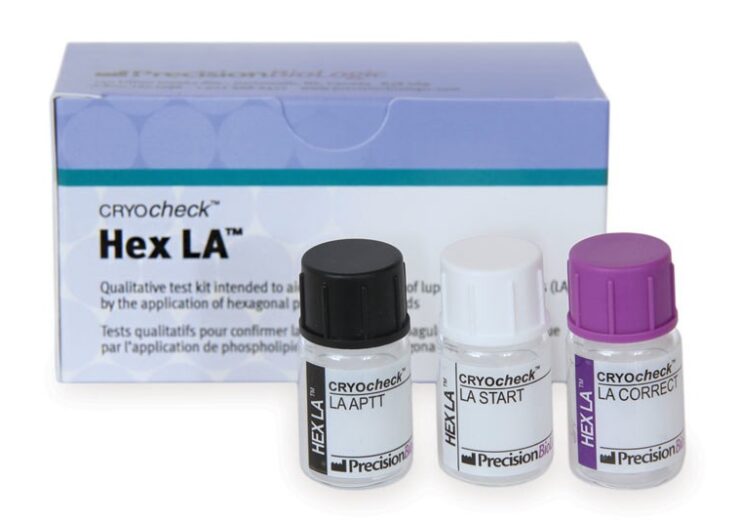Precision BioLogic is a privately-held company that develops, manufactures, and markets the CRYOcheck line of frozen products

CRYOcheck Hex LA: Intended for use in clinical labs. (Credit: CNW Group/Precision BioLogic.)
CRYOcheck Hex LA is intended for use in clinical labs to aid in the detection of lupus anticoagulant (LA) in human plasma. Hex LA is an integrated (screen and confirm) assay and, as its name suggests, applies hexagonal phase phospholipids. It is the first commercially available hexagonal phase LA test available in a frozen format, allowing for fast and easy preparation. Designed to work on many common automated coagulation analyzers, Hex LA offers valuable time savings to today’s busy labs.
Coinciding with the launch of Hex LA is the introduction of CRYOcheck Lupus Negative Control. Hex LA and Lupus Negative Control are the latest additions to Precision BioLogic’s suite of LA testing products, which includes LA Check™ (a dRVVT screening reagent), LA Sure™ (a dRVVT confirmatory reagent), Platelet Lysate, and two lupus positive controls.
“The launch of Hex LA rounds out our LA offerings and illustrates our commitment to bringing novel solutions to clinical hemostasis labs,” says Paul Empey, President & CEO of Precision BioLogic. “We’re not done yet,” he adds. “Labs can look forward to more innovative products from us later this year.”
Hex LA is U.S. FDA cleared, CE Marked, and Health Canada authorized. It is also included on the Australian Register of Therapeutic Goods (ARTG).
Lupus anticoagulant (LA) is an antibody produced by the immune system. LA interferes with the blood clotting process and increases a person’s risk of developing a blood clot, which can lead to stroke, heart attack, or pulmonary embolism. LA is also associated with recurrent miscarriages. There is no gold standard test for the detection of LA, and it cannot be measured directly. Given the complexity of LA, its presence is often determined using a series of tests. There is no cure, however, there are treatments to help decrease the risk of excessive clotting.
Source: Company Press Release
